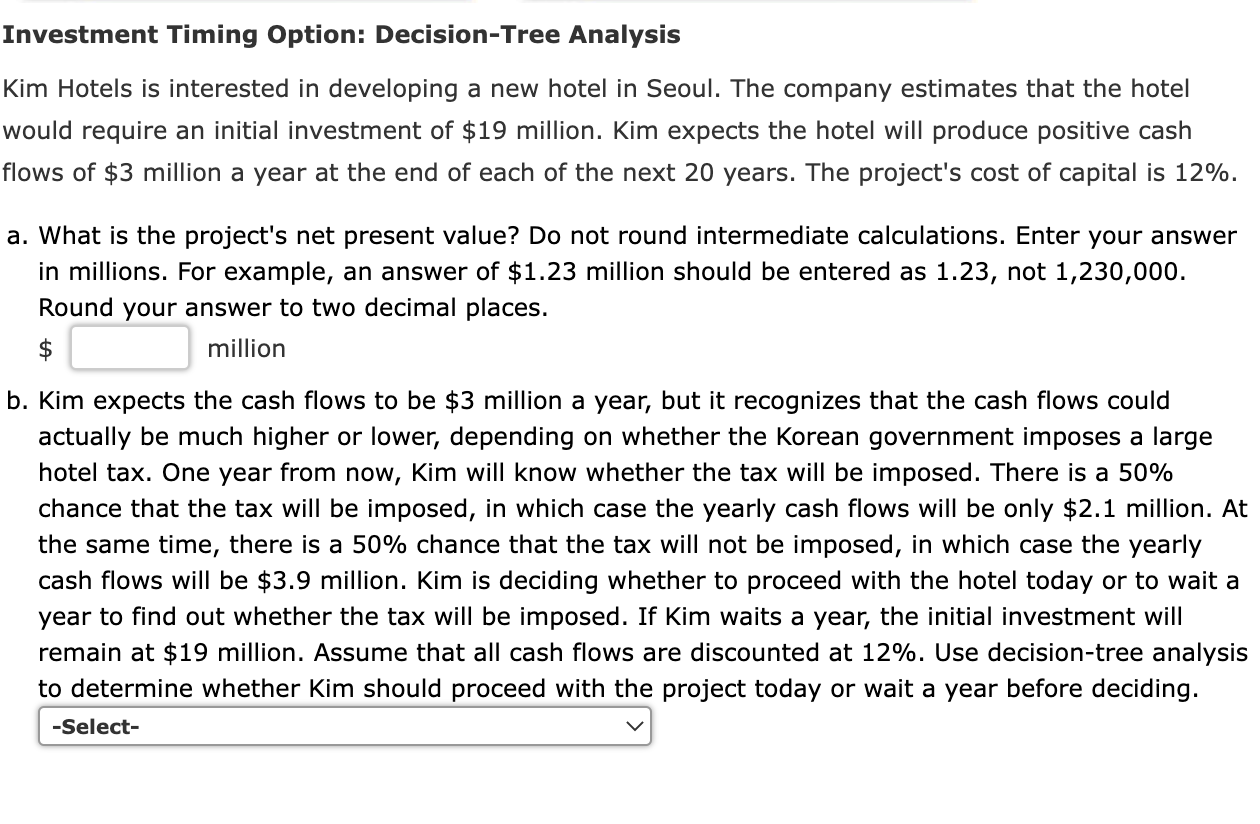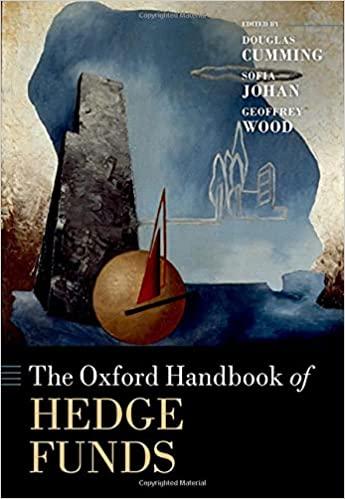
Investment Timing Option: Decision-Tree Analysis Kim Hotels is interested in developing a new hotel in Seoul. The company estimates that the hotel would require an initial investment of $19 million. Kim expects the hotel will produce positive cash flows of $3 million a year at the end of each of the next 20 years. The project's cost of capital is 12%. a. What is the project's net present value? Do not round intermediate calculations. Enter your answer in millions. For example, an answer of $1.23 million should be entered as 1.23, not 1,230,000. Round your answer to two decimal places. \$ million b. Kim expects the cash flows to be $3 million a year, but it recognizes that the cash flows could actually be much higher or lower, depending on whether the Korean government imposes a large hotel tax. One year from now, Kim will know whether the tax will be imposed. There is a 50% chance that the tax will be imposed, in which case the yearly cash flows will be only $2.1 million. At the same time, there is a 50% chance that the tax will not be imposed, in which case the yearly cash flows will be $3.9 million. Kim is deciding whether to proceed with the hotel today or to wait a year to find out whether the tax will be imposed. If Kim waits a year, the initial investment will remain at $19 million. Assume that all cash flows are discounted at 12%. Use decision-tree analysis to determine whether Kim should proceed with the project today or wait a year before deciding. Investment Timing Option: Decision-Tree Analysis Kim Hotels is interested in developing a new hotel in Seoul. The company estimates that the hotel would require an initial investment of $19 million. Kim expects the hotel will produce positive cash flows of $3 million a year at the end of each of the next 20 years. The project's cost of capital is 12%. a. What is the project's net present value? Do not round intermediate calculations. Enter your answer in millions. For example, an answer of $1.23 million should be entered as 1.23, not 1,230,000. Round your answer to two decimal places. \$ million b. Kim expects the cash flows to be $3 million a year, but it recognizes that the cash flows could actually be much higher or lower, depending on whether the Korean government imposes a large hotel tax. One year from now, Kim will know whether the tax will be imposed. There is a 50% chance that the tax will be imposed, in which case the yearly cash flows will be only $2.1 million. At the same time, there is a 50% chance that the tax will not be imposed, in which case the yearly cash flows will be $3.9 million. Kim is deciding whether to proceed with the hotel today or to wait a year to find out whether the tax will be imposed. If Kim waits a year, the initial investment will remain at $19 million. Assume that all cash flows are discounted at 12%. Use decision-tree analysis to determine whether Kim should proceed with the project today or wait a year before deciding







